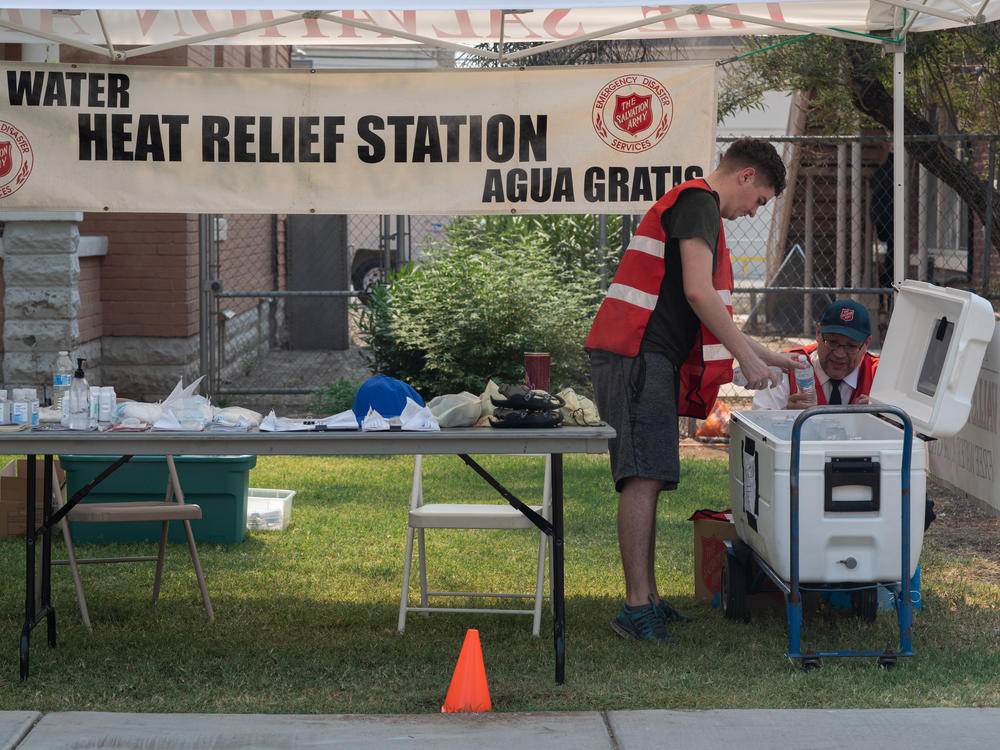Section Branding
Header Content
Extreme heat will smother the South from Arizona to Florida
Primary Content
After a weekend of broiling heat waves in the Southwest and South Florida, more extreme heat is forecast to build throughout the week.
Forecasters say residents of both regions should stay out of the sun as much as possible.
Across the country, heat waves are getting hotter, lasting longer and becoming more unpredictable. Jeff Goodell, the author of The Heat Will Kill You First, called it a dire consequence of climate change.
"We know that as we continue to burn fossil fuels, our planet is getting hotter," Goodell said on Morning Edition. "Heat waves are the clearest manifestation of that."
They can be especially life-threatening for older adults, children, people with disabilities and those who work outdoors.
Arizona and southern Nevada
This week in Phoenix, the temperature is forecast to reach between 111 and 118 degrees — with the hottest day expected on Saturday, according to National Weather Service.
An excessive heat warning, which cautions people to avoid being in the sun, is in effect until Sunday. But Isaac Smith, a meteorologist with the NWS office in Phoenix, told NPR the scorching temperatures might last beyond that.
Phoenix has reached highs above 110 degrees for 10 consecutive days as of Sunday. The longest that the city has experienced extreme heat above 110 degrees was an 18-day stretch in 1974. Forecasters say the current heat wave is on track to break that record.
Further south, Tucson, Ariz., is about to see a combination of hot weather and thunderstorms, as monsoon moisture forms along the state's border with Mexico.
In Nevada, Las Vegas also is slated to be under an excessive heat warning from Tuesday until July 17, as highs reach between 109 to 117 degrees.
Texas
A heat advisory is in effect until Monday evening for much of Texas, including Austin, Dallas and Houston.
In central Texas, which includes Austin, the combination of extreme heat and high humidity will push the heat index to between 105 to 112 degrees. To put in perspective, health experts say that any heat index above 103 degrees can cause health problems if a person is outside for too long.
From south central to southeast Texas, the heat index could go as high as 109 on Monday. That warning includes Houston, Austin, Uvalde and San Antonio.
South Florida
After sweltering conditions this weekend, a heat advisory has been extended to Wednesday evening for all of South Florida, from Naples to Miami to Fort Lauderdale areas.
The region's heat index is forecast to range from 105 to 110 degrees.
The sweltering conditions come as Miami is already on track to see its hottest year on record. The city has already broken 15 record daily temperatures — seven of which took place last month, according to member station WLRN.
Copyright 2023 NPR. To see more, visit https://www.npr.org.
Correction
A previous version of the story said that central Texas includes the city of Dallas. In fact, it includes Austin; Dallas is in north Texas.

